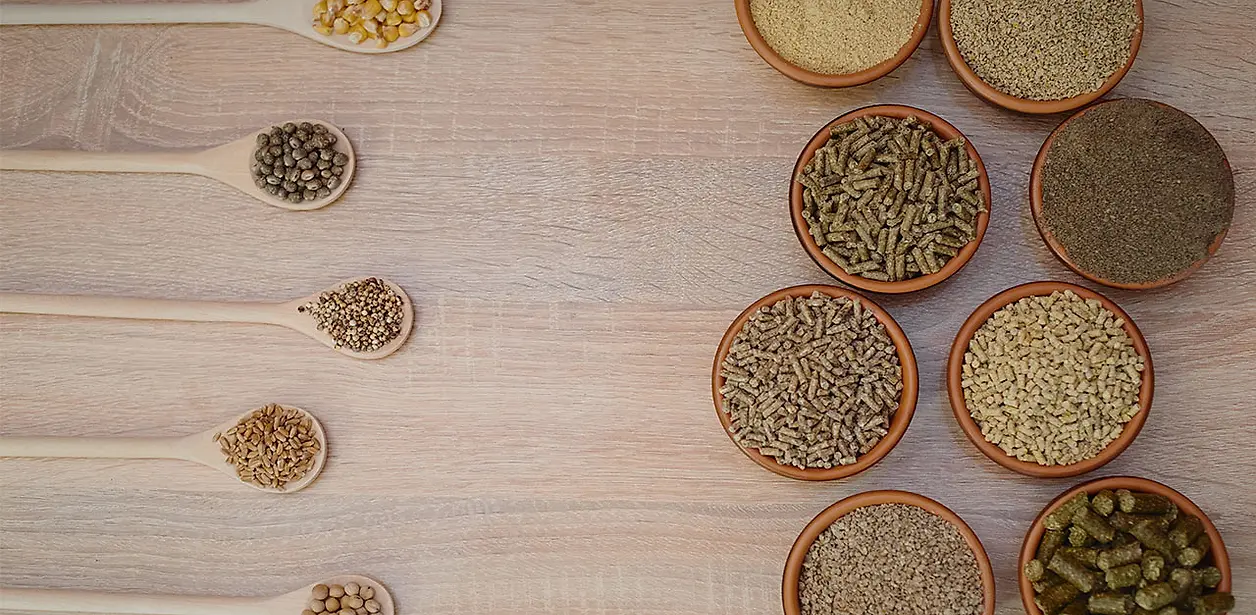ISO 192916 Crude Fat Analysis in Pig Diets
The analysis of crude fat content in pig diets is a critical component of ensuring optimal nutrition for pigs. Proper dietary fat levels are essential to support growth, energy production, and overall health. This service adheres strictly to ISO 192916, which provides standardized procedures for determining the crude fat content in feed materials.
The process involves several steps that begin with sample preparation. A representative portion of the pig diet is taken and dried at a specific temperature (usually around 105°C) until constant weight is achieved. This step ensures that all moisture has been removed, leaving only the dry matter components to be analyzed.
The dried sample is then combusted in an oxygen stream under controlled conditions. The combustion process converts the organic component of the diet into carbon dioxide and water, while the non-combustible ash remains behind. By measuring the weight loss during this combustion, it becomes possible to calculate the crude fat content.
Crude fat analysis is particularly important for pig diets because fats play a vital role in energy supply and nutrient absorption. An insufficient amount of fat can lead to poor growth rates and reduced feed efficiency, while excessive fat levels may cause health issues such as fatty liver syndrome. Therefore, precise measurement using ISO 192916 ensures that the diet is formulated correctly for optimal performance.
The accuracy and precision of this analysis are paramount in maintaining compliance with regulatory standards and ensuring product quality. This service not only meets but exceeds international standards by employing state-of-the-art equipment and experienced personnel who adhere strictly to ISO 192916 guidelines throughout the entire process.
Our laboratory uses advanced analytical techniques like gas chromatography coupled with mass spectrometry (GC-MS) for additional verification of fat content, providing comprehensive data that supports informed decision-making by our clients. This approach ensures that every batch of pig feed undergoes rigorous quality control checks before being released into the market.
By leveraging ISO 192916, we provide a reliable and consistent method for determining crude fat content in pig diets. This service supports various stakeholders including quality managers, compliance officers, R&D engineers, and procurement teams by offering accurate results backed by robust methodology.
Why Choose This Test
- Precision: Adherence to ISO standards ensures consistent and reliable results across different batches of feed.
- Compliance: Meeting regulatory requirements helps avoid legal penalties and maintains a positive brand reputation.
- R&D Support: Provides valuable data for ongoing research and development projects related to pig nutrition.
- Promotes Optimal Growth: Ensures that pigs receive adequate amounts of fat necessary for healthy growth and development.
- Avoids Waste: Precise measurements help prevent overfeeding or underfeeding, reducing unnecessary costs associated with waste production.
Clients of this service benefit significantly from the high level of accuracy provided by ISO 192916. By ensuring that the correct amount of fat is present in pig diets, we contribute to improved animal health and welfare, which translates directly into enhanced productivity within farms.
Our commitment to quality does not stop at technical excellence; it extends to customer satisfaction through timely delivery of reports and proactive communication regarding any discrepancies found during analysis. This dedication has earned us a reputation for reliability among leading agricultural companies worldwide.
- Diet Formulation: Ensuring that the fat content meets nutritional specifications set forth by industry standards.
- Quality Control: Regularly testing feed batches to maintain consistency in product quality over time.
- Regulatory Compliance: Meeting government regulations related to animal feed safety and efficacy.
- R&D Innovation: Providing data for new formulations aimed at improving pig health and performance.





